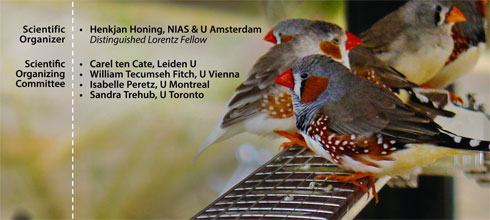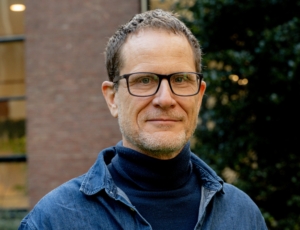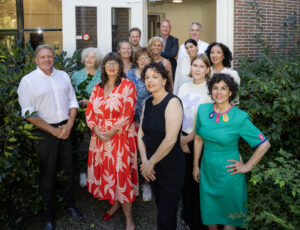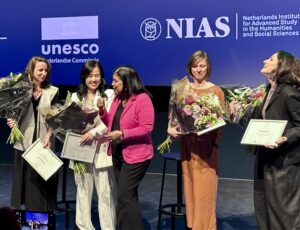The workshop is organised by Henkjan Honing, the current Distinguished Lorentz Fellow at NIAS.
The Distinguished Lorentz Fellowship is awarded to a leading scientist working on cutting-edge research at the interface between the Humanities and/or Social Sciences on one hand and the Natural Sciences and/or Technological Sciences on the other. The residential fellowship is held at NIAS and the workshop is held at the Lorentz Center.
The role of music in evolutionary history
“What was the role of music in the evolutionary history of human beings? We propose to address this question from the point of view that musicality can be defined as a cognitive trait. Although it has been argued that we will never know how cognitive traits evolved (Lewontin, 1998; Bolhuis & Wynne, 2009), the aim of the workshop is to explore the idea that we may know the evolution of music by investigating the fundamental cognitive mechanisms that make up musicality (e.g., relative pitch and beat induction). In addition, we propose to evaluate evidence from a variety of sources (e.g., developmental, psychological, computational, physiological, phylogenetic, and cross-cultural evidence) to be able to identify whether a specific cognitive mechanism is fundamental to music and musicality or not.”
“While it is virtually impossible to underpin the evolutionary role of musicality as a whole, its apparent innateness (or spontaneously development), and the species and cognitive
specificity of its hypothesized components make it an ideal starting point for a research program aimed to tighten the nomological network of evidence around musical behavior. The secondary aim of the workshop is to put further constraints on existing evolutionary theories of music cognition by evaluating recent findings from the fields of biology, musicology, neurology and psychology.”
For a full program, see Workshops.




